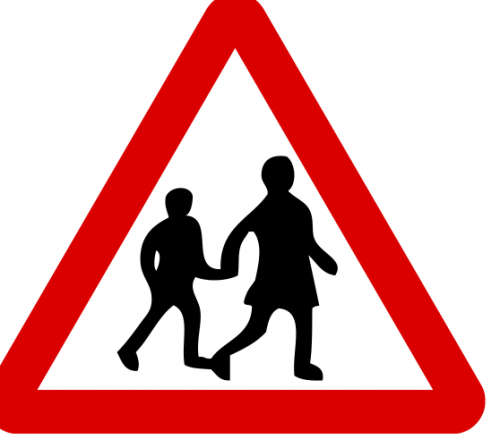Stepping out: Children negotiating independent travel

A two-year study has revealed the final years of primary school are critical for developing children's confidence and independence to travel without their parents in their communities.
The Stepping Out study conducted by the University of Melbourne and VicHealth aimed to increase understanding of how children negotiate independent travel, and to find ways to encourage children to walk independently and foster health and wellbeing.
The study explored children's perspectives by walking and talking with them as they negotiated daily travel journeys, in addition to speaking with class groups, parents and teachers. The study worked with 48 children across three schools in the local government area of Moreland in Victoria, during 2011 and 2012.
The children in the study were aged 10-12 – a transitional age in social and educational terms, representing the shift from primary to secondary school.
By late primary level, children are preparing for the transition to secondary school, and which often requires traveling further from home using varied modes of transport.
Dr Lisa Gibbs from the School of Population and Global Health said there was a range of traffic safety measures, as well as school education and active travel programs already in place.
"However, our findings suggest there are a number of other ways families, schools and communities are able to support children's development of mobile independence," she said.
"We identified a range of shared characteristics in children able to travel in their neighbourhood without adult supervision. Children will travel with friends or relatives and choose busier routes and at popular times to provide visibility in public spaces," he said.
Dr Bjorn Nansen from Computing and Information Systems at Melbourne also observed the role of new portable technologies. "Many children now have mobile phones that provide a sense of security. This too makes an impact on how children negotiate their travel."
The findings suggest that parents can help support children's transitioning to independent travel through stages such as walking with children early on, then slowly releasing the tether to allow them to walk ahead, to walk with friends or siblings, practicing new routes together, setting rules about routes, having children carry a mobile phone, and finally allowing children to travel without adults.
VicHealth CEO Jerril Rechter said: "When you consider that two-thirds of children in Victoria are now driven to school even though they live less than two kilometres away, it's no wonder that one in four children are overweight or obese. That's a massive increase from just one in 20 in the 1960s.
"VicHealth is really interested in what is driving this phenomenon and Dr Gibbs' research provides a positive anecdote to the so-called 'cotton-wool kids' phenomenon by offering parents advice on how to get their kids walking more often."
















